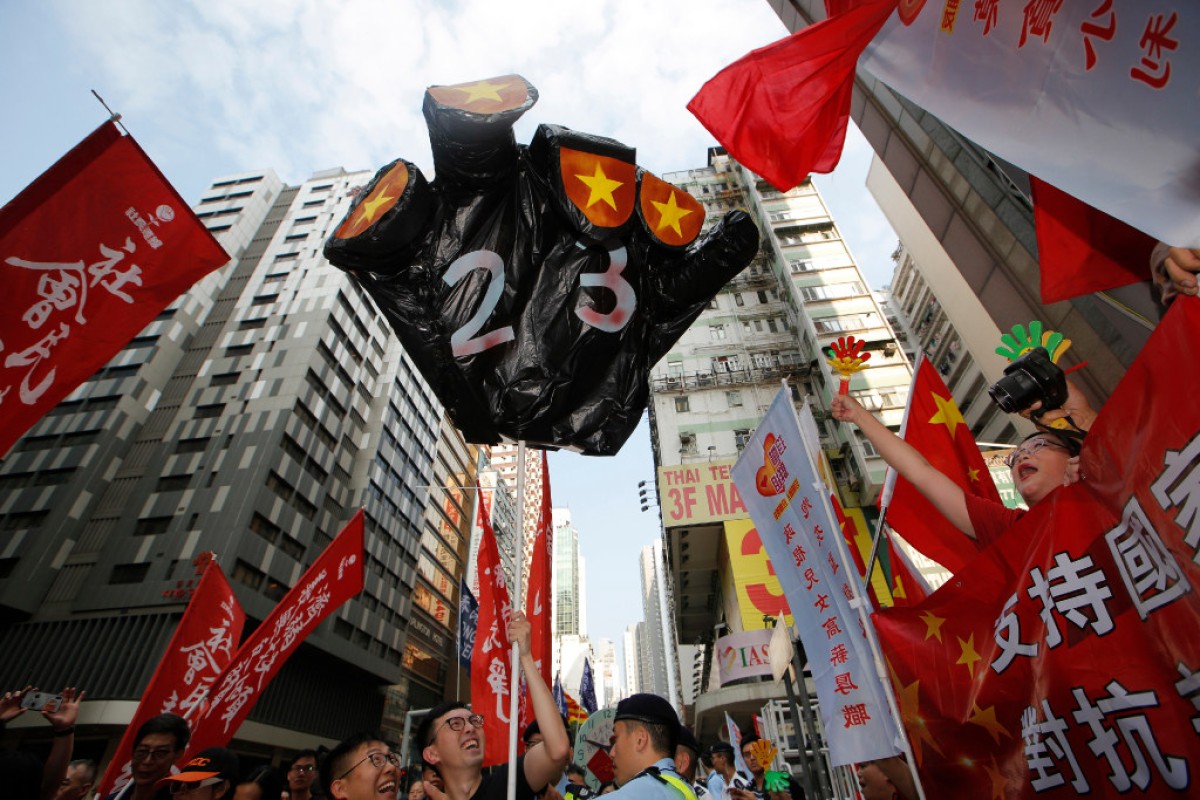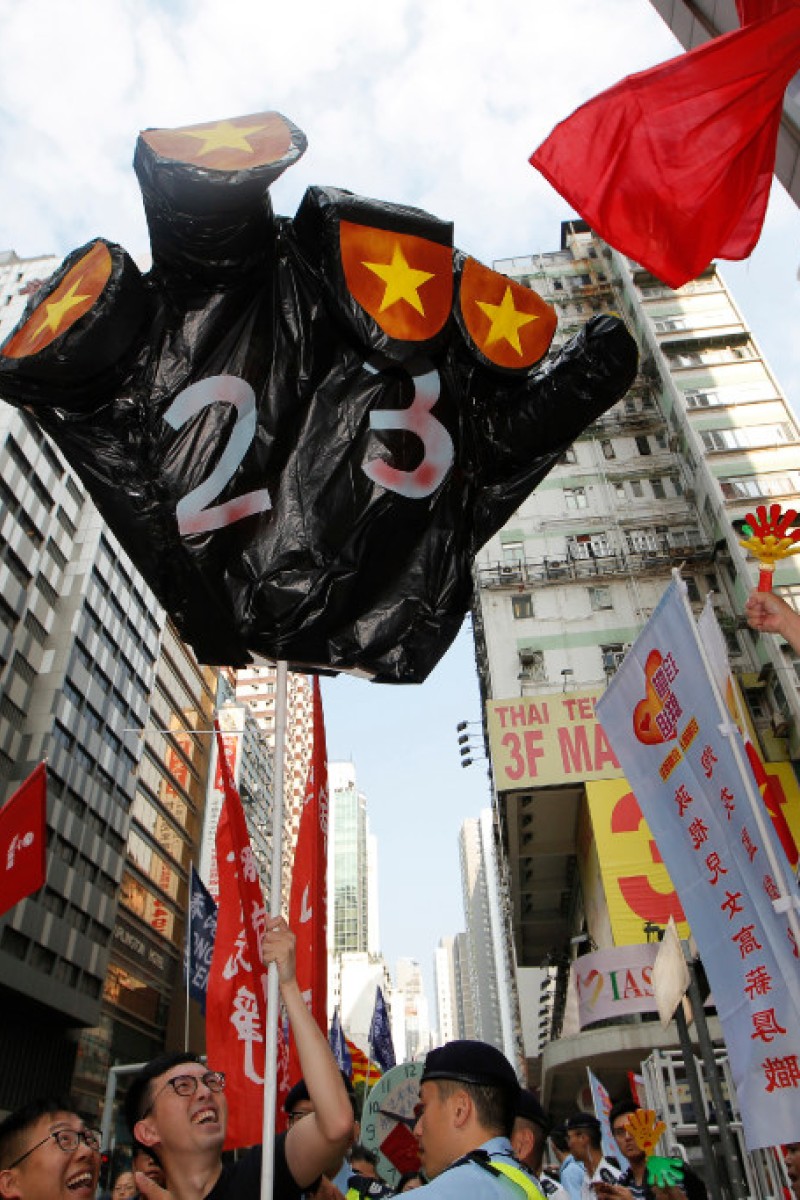 Pro-democracy protesters march against discussions to enact Basic Law Article 23.
Pro-democracy protesters march against discussions to enact Basic Law Article 23.Amber Kwok, 15, Renaissance College
Some people say Hong Kong’s rule of law is under threat but I don’t agree. There is simply no proof that this is happening.
The jailing of three pro-democracy student leaders – Joshua Wong Chi-fung, Nathan Law Kwun-chung, and Alex Chow Yong-kang – for their role in the 2014 Occupy Central protests was perfectly justified.
The ruling makes it clear that those who use violence to exercise their freedom will have to pay a price for their actions. There was no political interference in the decision. Hong Kong is well-known for its judicial independence, which sets it apart from the mainland.
I think the Hong Kong government handled the three-month-long Umbrella Movement really well. The protesters who broke the law were brought before the courts and dealt with accordingly.
The city has a high degree of autonomy from Beijing under the “one country, two systems” concept. I agree that when this blueprint expires in 2047, things will be a little different, but the Basic Law will still be enforced.
It is important to remember that although Hong Kong is hoping to play a major role in the mainland’s “Greater Bay Area” project, there won’t be any outside interference in how the city is run.
There are also complaints about Hong Kong’s human rights record and that it is not allowing well-known dissidents to enter the city. But there is no clear evidence to show that the city’s rule of law has been eroded.
Since the handover, the Hong Kong government has faced many challenges from its opponents but nobody can say it has acted illegally. Public confidence is crucial to maintain Hong Kong’s rule of law and the city’s international reputation.
Why the rule of law and an independent judiciary are so important for HK’s future
Nicholas Ng, 17, South Island School
The rule of law is one of the pillars of a “free” Hong Kong. However, for the sake of this argument, I’m going to say that the Hong Kong government uses the term “rule of law” frequently to justify its actions.
Ironically, it always acts against the original conception of the rule of law – freedom and fairness for all citizens. For example, take the one country, two systems principle. The government has flouted the law by banishing two lawmakers from the Legislative Council under the pretence of judicial integrity; covered up the abduction of five booksellers who published material critical of the central government; and is hoping to implement a sweeping national anthem law which embodies “the symbol of the nation”.
The SAR government has decided to use the rule of law as an excuse or weapon to achieve political goals. Another key example is the case of The Financial Times journalist Victor Mallet, who was denied entry to Hong Kong even as a visitor in November last year.
This is simply because he had invited pro-independence activist Andy Chan Ho-tin, then convenor of the National Party, to a talk at the Hong Kong Foreign Correspondents’ Club last August.
In an ideal world, the legislative, executive, and judicial branches are separate and each has special responsibilities. But in Hong Kong, things are run differently, with the judicial system pandering to executive power.
In the light of all that has happened in recent years, it has become increasingly important to evaluate what rule of law really means, and how easily it can be moulded in favour of vested interests.
The key institutions of Hong Kong’s justice system tread a very fine line between law and politics – every scandal and every attempt to silence those who are deemed a threat is an indicator of the dire future that Hong Kong’s rule of law faces.

